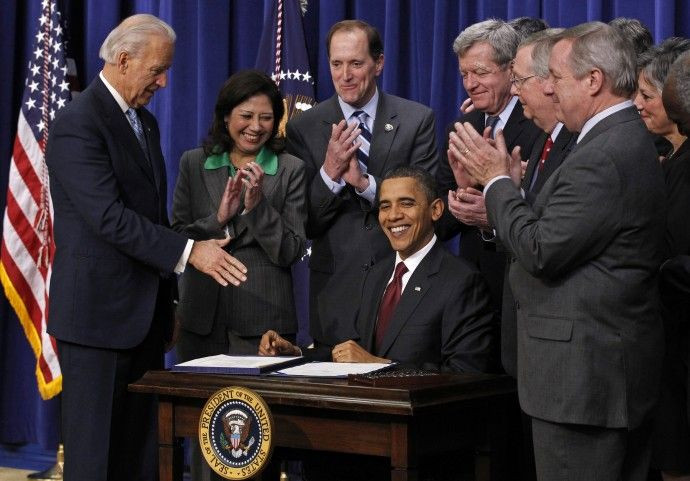U.S. Senate repeals 'Don't Ask, Don't Tell'

The U.S. Senate on Saturday voted to repeal of the 'Don't Ask, Don't Tell' law, in a move that would pave the way for gays to serve openly in the military.
The move is seen as a major victory for President Barack Obama and his administration. The 17-year-old law's tenure reached an end after the Senate voted 65-31 favoring its repeal. The House voted for repeal earlier in the week.
The 1993 'Don't Ask, Don't Tell' law barred gay people in the military from revealing their sexual orientation. Reports suggest that more than 13,000 men and women were expelled from the military due to the policy. A recent Pentagon report, however, found that most personnel in the armed force expressed little objection to the proposal of lifting the ban.
By ending 'don't ask, don't tell,' no longer will our nation be denied the service of thousands of patriotic Americans forced to leave the military, despite years of exemplary performance, because they happen to be gay. And no longer will many thousands more be asked to live a lie in order to serve the country they love, Obama said in a statement.
In the Saturday’s vote, moderate Republicans joined the Democrats, maintaining that the ban was a discriminatory policy. The Obama administration, in order to keep its promise to the electorate, hurried to pass the bill before the end of the current session. Starting in January, Republicans will have greater numbers in the Senate.
Opposition to the plan came from 2008 Republican presidential candidate, John McCain. He argued that the end of the ban would demoralize the discipline and harm unit cohesiveness amongst combat troops.
McCain, a former Navy pilot and prisoner of war in Vietnam, stated that it was too early to end the ban.
This debate is not about the broader social issues that are being discussed in our society, but what is in the best interest of our military at a time of war, he asserted.
Obama is likely to sign the bill into law by the end of this week, but the White House has clarified that the policy will remain in effect until the new rules are in place, which will take over two months.
© Copyright IBTimes 2024. All rights reserved.





















